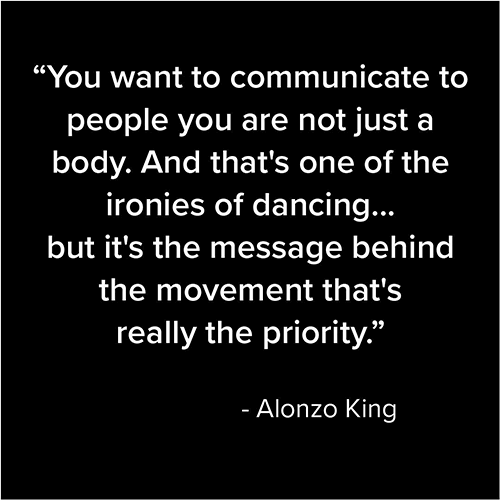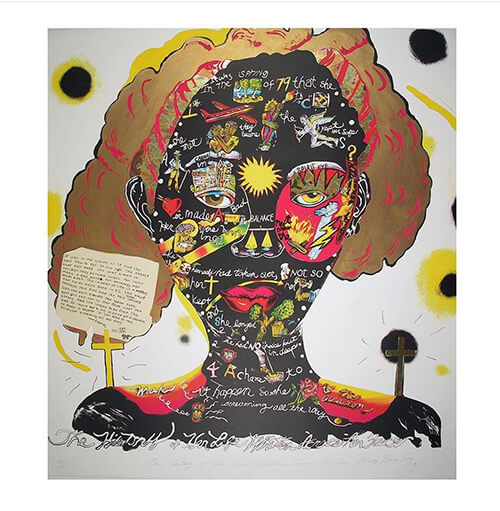Our nation, our city, our university, and our communities are grieving the continued violent murders of Black people like George Floyd, Breonna Taylor, Ahmaud Arbery, and so many others. They are a reminder of the systemic racism that has been a long-standing part of our history.

George Floyd’s senseless death leaves us heartbroken and angry, and because it is not an isolated event, the anguish that we all share is palpable.
In Arizona Arts we stand recommitted to the important work of effecting change within our communities. This is not a time to be quiet. Our promise is to speak up and take concrete action in this moment and beyond, because not to do so comes with a price. We stand with the victims of racism and anti-Blackness who experience the violence of social inequity often with fatal consequences. We will listen and support efforts to undo systemic injustice, and we invite you to hold us accountable as we pledge to focus on the power of art to create positive change.
This Message from the Dean includes commitments from Arizona Arts to challenge systemic injustice and resources to assist you to act.
Arizona Arts’ Social Solidarity

School of Theatre, Film & Television
Ahead of a developing action plan in which we aim to make long-term and sustainable changes to the culture of the School of Theatre, Film & Television, we invite you to click the link below to access a document containing resources and suggestions for action in support of the Black Lives Matter movement. We commend and stand with our students who compiled this list of action items that allow us all to take part in the fight for justice and against racism.
Proud to share “A Letter to America,” a video created by UA School of Theatre, Film & Television alumni Dillon Daniel and Bryan McAdams in support of Black Lives Matter. The message: Be a human. End racist America.

School of Dance
UA Dance stands in solidarity with our artists of color. We strive to create a safe space for black artists and members of our community to thrive. We are committed to listening, improving, and holding space for the important conversations that are needed and overdue.
Black Lives Matter.
#blacklivesmatter
(Alonzo King is a visionary choreographer and has directed the internationally acclaimed San Francisco-based, LINES Ballet since 1982.)

Center for Creative Photography
For us, change begins by acknowledging that CCP has for too long centered on the white experience, often to the exclusion of the voices of Black, Indigenous, and People of Color. We participate in constructing histories and are involved in the education of our communities. We must do better. We are listening and rigorously examining our structures, practices, and content. In the weeks ahead, we will share our plans and goals. We commit to implementing concrete actions for a more diverse, equitable, accessible, and inclusive CCP.
Arizona Arts Live (formerly UA Presents)
On Tuesday, June 2, UA Presents has asked our staff to take the day to get out, read, make ourselves uncomfortable, talk with people, and most importantly LISTEN.
We will gather again on Wednesday and every day to share, find our feet, and reflect on how we will make UA Presents a safe place for hard conversations that will shift society so that anyone regardless of the color of their skin will have an opportunity to live until tomorrow.
UA Presents is pausing to reflect and identify ways we as a staff and organization can stand in solidarity with Black artists, our partners, and the entire Black community. We aim to contribute effectively to the fight against racial inequality and oppression.
“My Skin” is a spoken-word performance by Tucson hip-hop artist Shaun Harris, recorded by The Tucson Studio.

1989-1991, Lithograph with metallic leaf on chine-collé,
Museum purchase
University of Arizona Museum of Art
Margo Humphrey’s self-portrait “The History of Her Life Written Across Her Face” documents her life as a Black American female artist and shows how lived moments become etched into our bodies and minds.
As much as museums exist to preserve history, they also play an active role in creating it through their collecting, exhibition, and programming choices. This means that a museum’s decisions are historic in themselves: they affect the way history will be told and remembered, and they impact the way cultures and people are valued or devalued. Many museums, including UAMA, have made choices that racially excluded and silenced.
We recognize our enormous responsibility. We do not have all of the answers, but we are committed to listening, learning, evolving, and creating sustainable actions that lift Black voices and other voices of color above and beyond social media posts.

School of Art
We in the arts have an obligation to call out injustice. We can do better supporting the voices of our students and UArizona community of color. Here are some resources we have found to help our collective efforts to fight for justice and support Black communities and other communities of color:
- Scaffolding Anti-Racism Resources
- Hard Truths: Why Only Race-Conscious Policies Can Fix Racism in Higher Education
- Black-Owned Businesses in Tucson

Fred Fox School of Music
As faculty, staff, students, and administrators, the Fred Fox School of Music community unequivocally denounces racism in all its forms. We are shocked and we abhor recent examples of blatant racism and hate directed toward Black communities throughout the nation. We acknowledge that for our students of color, individual and institutional racism is part of their daily lived experience.
Mistreatments such as racial stereotyping, microaggressions, and biased actions are unacceptable forms of discrimination that demand our continued attention and commitment to justice and to change. We as a school are committed to the highest aspirations of fairness and equal opportunity. As a community of musicians our approach to future changes will be thoughtful, purposeful, and guided by the recognition that ours must be an ongoing and sustained effort.
Arizona Arts in Schools
Our students, stakeholders and colleagues are Black, Indigenous and Latinx. Arizona Arts in Schools seeks team members that reflect that diversity and, as a team, we actively examine unconscious biases in our curriculum and practices. We do this because we know the unconscious biases that exist even among those we consider allies in creating broader access to arts education.
We have heard well-meaning K-12 educators, arts education funders, and other colleagues comment on our work, referring to particular student groups in which a majority were of the ethnicity indicated in brackets:
- “Those students aren’t interested in classical guitar, are they?” [those = Black]
- “Those students will never be ready to perform at an event in October. It’s too early in the school year for them.” [those/them = Latinx]
- “Those students can’t learn to read music.” [those = indigenous]
In this year where we have seen a pandemic that is killing Black, Indigenous and Latinx Americans at more than twice the rate of White Americans and as we witness instance after instance of police violence against Black citizens in the communities where we work, we at Arizona Arts in Schools re-dedicate ourselves to being allies, listeners, and learners in the fight for equity.
